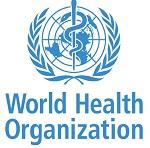
From 14–16 October 2025, regulators, policymakers and researchers convened in Jakarta, Indonesia for the 16th annual meeting of the World Health Organization’s International Regulatory Cooperation for Herbal Medicines (IRCH). Hosted by Indonesia’s national drug authority (BPOM RI), the gathering aimed to strengthen collaboration, harmonise regulation and boost the safe, quality use of herbal and traditional medicines worldwide.
In his opening remarks, Dr Sungchol Kim (Chair of IRCH) emphasised that evidence-based regulation and mutual learning are essential for building trust in herbal medicines across Member States.
Prof Taruna Ikrar, Chairperson of BPOM RI, welcomed delegates and underscored Indonesia’s deep heritage in traditional “jamu” medicines alongside its intent to serve as a leader in regulation of herbal products.
Around 57 in-person delegates and 31 online representatives attended, spanning 22 Member-States and 31 observer organisations of IRCH.
The meeting featured plenary and technical sessions structured under three main working groups:
Working Group 1: Safety & regulation of herbal medicines.
Working Group 2: Quality control, standardisation & sustainability.
Working Group 3: Efficacy and intended use of herbal medicines.
Also showcased were recent capacity-building efforts: for example, a three-day hybrid workshop in India for WG1 & WG3, plus an online two-day workshop in China for WG2.
The WHO Secretariat presented updates on:
The WHO Global Traditional Medicine Strategy 2025–2034, which emphasises research, integration and regulation of traditional, complementary and integrative medicines.
The WHO International Herbal Pharmacopoeia (IHP) and efforts toward harmonising terminology and setting reference limits for contaminants in herbal medicines.
The WHO Global Benchmarking Tool (GBT) for evaluating national regulatory authorities of traditional medicine products.
The meeting also forms a crucial lead-up to the 2nd WHO Traditional Medicine Global Summit (17–19 December 2025, New Delhi) where the “Regulation of TCIM Products” will be a dedicated topic.
Indonesia highlighted its enormous botanical biodiversity with as many as 30,000 medicinal plant species, 18,000+ herbal products registered, and 20 phytopharmaceuticals currently recognised.
Meanwhile, India showcased its regulatory evolution: a high-level delegation led by Dr Raghu Arackal (Advisor Ayurveda) presented its evidence-based policies and international collaborations in traditional medicine regulation.
With increasing global use of herbal and traditional medicines, regulators face the challenge of ensuring safety, quality, efficacy, and sustainability. The IRCH meeting underscores that regulation cannot lag behind usage.
Next steps:
Countries are encouraged to translate deliberations into national action plans and regulatory reforms.
Cross-border sharing of data, technical standards and capacity building will gain momentum.
The outcomes of this meeting will feed into the larger summit in December and the ongoing Global Strategy.
As Dr Kim remarked in his closing remarks: “Collaboration, capacity-building and knowledge sharing must continue beyond the meeting room.”
Read the full article here.